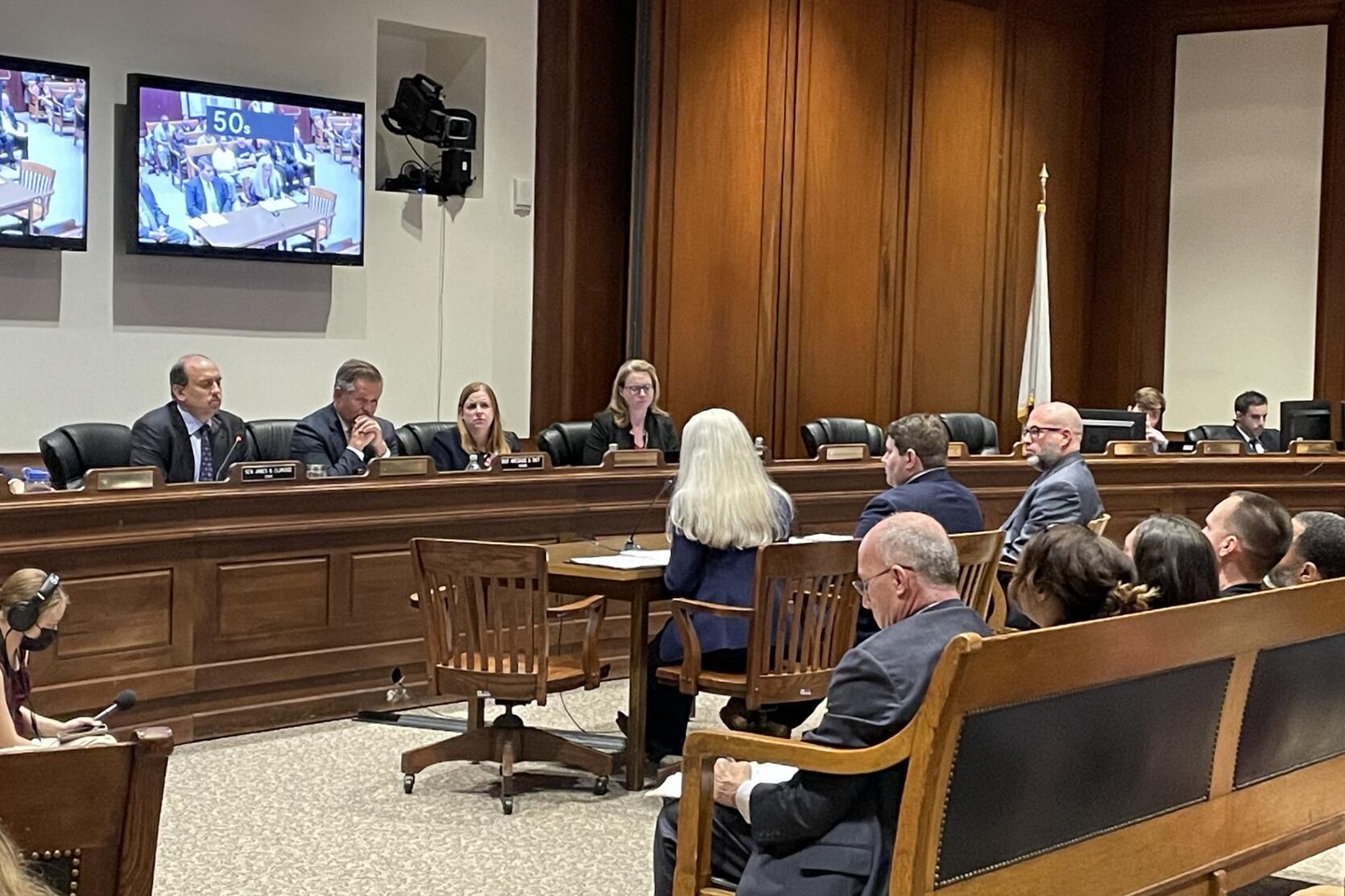- Massachusetts Probation Service
Media Contact
Coria Holland, Communications Director

Acting Probation Commissioner Dianne Fasano and Vincent Lorenti, Director of the Office of Community Corrections, recently testified before the State Legislature in support of two bills - House Bills 1684 and 1441 - respectively. Mr. Lorenti discussed making the Community Justice Centers more accessible and renaming the office overseeing these programs to the Office of Community Justice Programs. Acting Commissioner Fasano's testimony addressed updating language on the statute pertaining to the issuance of warrants. The testimonies took place during a recent hearing before the Joint Committee on the Judiciary which is chaired by Senator James B. Eldridge and Representative Michael Day.
The first bill, House Bill 1684, will streamline reforms achieved through the 2018 Criminal Justice Act and centralize the pathways to participation in the Massachusetts Probation Service's Community Justice Support Centers, according to Ms. Fasano and Mr. Lorenti.
"This will ensure that our network of Community Justice Support Centers is accessible to clients at every intercept point in the criminal justice process - from pretrial to returning citizen," said Mr. Lorenti. "Specifically, this bill consolidates those statutory changes into a revised version of Chapter 211F, the enabling statute for the Office of Community Corrections. We believe it will simplify, codify, and centralize all the pathways through which individuals come to the Community Justice Support Centers."
There are four pathways: Pretrial treatment, Pretrial Services, Intensive Supervision and Treatment, and Re-entry Services. Mr. Lorenti also provided testimony on the importance of changing the name of the centers to Community Justice Support Centers following a 2019 community attitude survey conducted by the Donahue Institute at the University of Massachusetts. "The survey determined that developing a new identity for the Centers would lead to a better understanding of their purpose, less stigma for our clients, and more engagement from community stakeholders," Mr. Lorenti said.
The second bill, House Bill 144, concerns the arrest - without a warrant - of individuals on probation and in temporary custody. The purpose of the bill, according to Ms. Fasano, is to "ensure safety by updating the language of G.L.c. 279, Chapter." The bill also seeks to "clarify which job titles may authorize warrants, and it removes barriers to making them available for widespread, electronic distributions on the Massachusetts Warrant Management System and the federal National Crime Information Center system."
"The bill does not increase Probation's authority to issue warrants. On the contrary, we believe that by modernizing the statute, we can better serve both the public and our clients in the community," Ms. Fasano said.